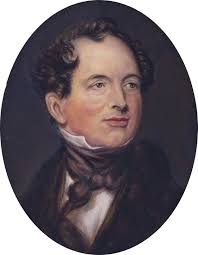Table of Contents
Life
Thomas Moore, born on May 28th, 1779, in Dublin, was an Irish writer and poet. Son of John Moore, a shoemaker, later becoming the director of a military barracks, and his mother was Anastasia Codd Moore.
He possessed a penchant for the arts since adolescence, and so, he was enrolled in Dublin’s best schools. Wherein he excelled as a prime student. Publishing his 1st poem in 1793, in the magazine ‘Anthologia Hibernica’ at the age of fourteen, which was a tremendous feat. Also, taking part in plays; he was a passionate actor, who would later go on to aid in the popularity of many of the traditional Irish Tunes by using them in the acts he performed.
Regardless of his academic feats, Moore had to endure discrimination, being of a Catholic school in a Protestant Ireland. He was disallowed to receive a scholarship for which his application was amongst the highest in terms of quality. At Trinity, Moore became acquainted with, and later befriended two people, Robert Emmett and Edward Hudson, who were both Irish students, and who became leaders of a rebellion against English rule, in 1798.
Regardless of the turmoil he faced, he succeeded in completing his education and got a bachelor’s degree in 1799. And at this time, he had begun the translation of the ‘Odes of Anacreon’, which were published in the year 1800 and gained popularity.
Moore got a degree in Law, in London, but never utilized it. Rather, he took a government post as Registrar of the Admiralty Prize-Court for the Bermudian colony, in 1803. He arrived in the new world in 1804. During his journey, he toured the United States and Canada. He gained an ocean of knowledge and perspective from this visit. The United States in the future became the sole subject of his writings.
Having achieved financial stability after the popularity of his melodies, Moore, in 1811, got married to Elizabeth Dyke. And the couple lived in England, for the rest of their lives. They sired five children and brought them up as Protestants.
Works
Moore, in 1801, published a few of his poems in one volume: “The Poetical Works of Thomas Little Jr.” The name adopted was in reference to his short physique. Moore published another book in 1806, the book “Epistles, Odes, and Other Poems” also gained popularity.
There were romantic themed and contained writing which was often considered ‘racy’ in accordance with the prevailing norms. His works gained him some fame in the literary world but also attracted some criticisms. The poorest of which was from Francis Jeffrey, Edinburgh Review’s editor who was dared to a duel by Moore, which caused Moore to gain quite some mockery.
Moore, however, recovered and returned in 1807 with his 1st volume of the Irish Tunes, which was created at the recommendation of the publishers William and James Power. The songs gained great success and popularity in Ireland, and also in England. Moore’s Irish Melodies, in the US, stimulated a whole custom of Irish-style Tunes.
Moore composed 124 melodies, with varying themes. Such as love, people and events of the times, wine and friendship, nature, miscellaneous life topics, Ireland, and other autobiographical topics. His compositions, in the times, to come provided him with the title of being the “Poet of the People of Ireland,”
His other works include Last Rose of Summer, Canadian Boat Song, Believe Me, If All Those Endearing Young Charms, Avenging and Bright, Bendemeer’s Stream, oft in the stilly night, My Heart and Lute, etc.
Biographies
He also engaged in the composition of the biography Richard Brinsley Sheridan, who was a playwright, by the name “Life of Sheridan”, in 1825. He also wrote, in 1830, Life of Byron, regarding George Gordon, the poet.
Moore during his life also worked on a book regarding the History of Ireland but was unable to finish it. He, in 1841, also issued assimilation of his works comprising of ten volumes and wrote an autobiographical foreword to each one.
In 1846 Moore’s health began to deteriorate, and he became afflicted with senile dementia, which began abruptly. The condition lasted the final years of his life. He passed at Sloperton Cottage on 25th February 1852.
He was buried in St. Nicholas’ Churchyard, Bromham, Wiltshire Unitary Authority, Wiltshire, England
Famous quotes
- My Birthday! What a different sound That word had in my youthful ears; And how each time the day comes around, Less and less white its mark appears
- Family life is full of major and minor crises — the ups and downs of health, success and failure in career, marriage, and divorce — and all kinds of characters. It is tied to places and events and histories. With all of these felt details, life etches itself into memory and personality. It’s difficult to imagine anything more nourishing to the soul.
- A friendship that like love is warm; A love like friendship, steady

 .
.
- Came but for friendship, and took away love.
- Finding the right work is like discovering your own soul in the world.
- No, there’s nothing half so sweet in life as love’s young dream.
- Romantic love is an illusion. Most of us discover this truth at the end of a love affair or else when the sweet emotions of love lead us into marriage and then turn down their flames.
